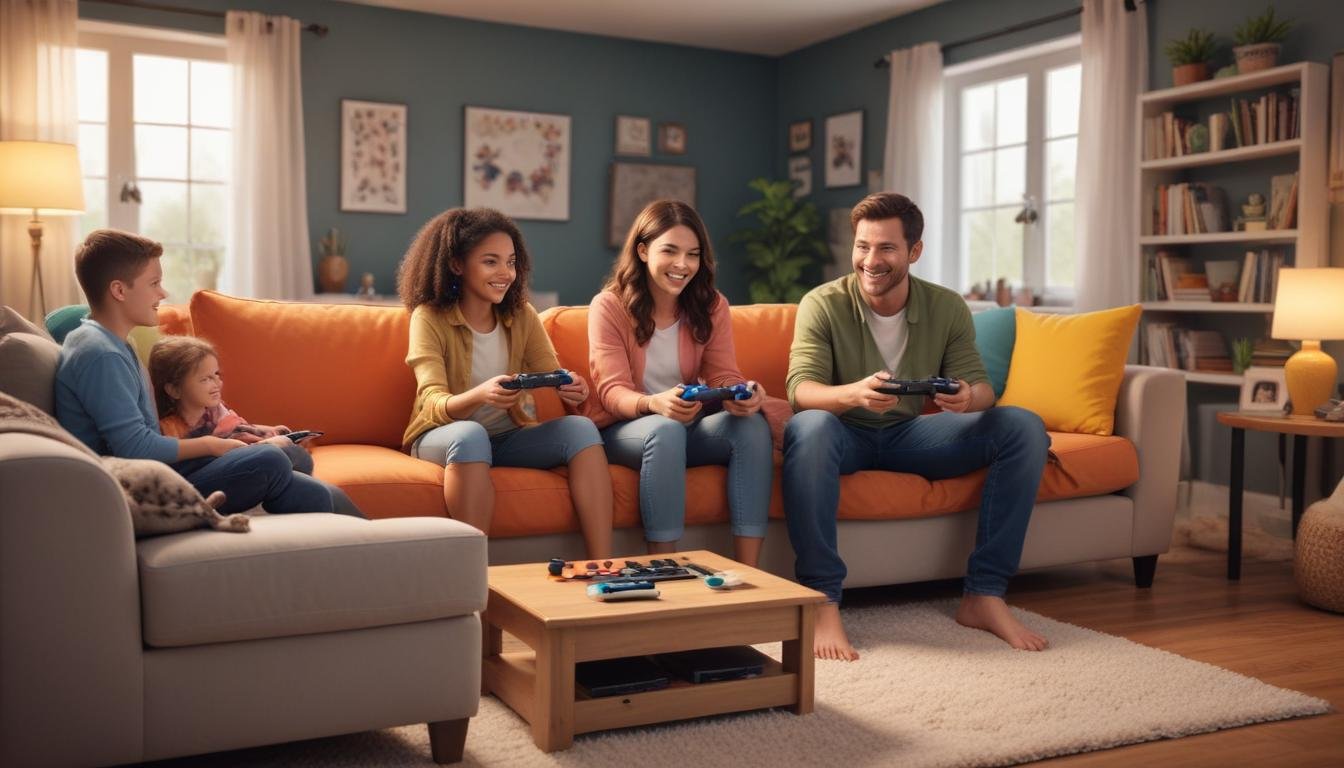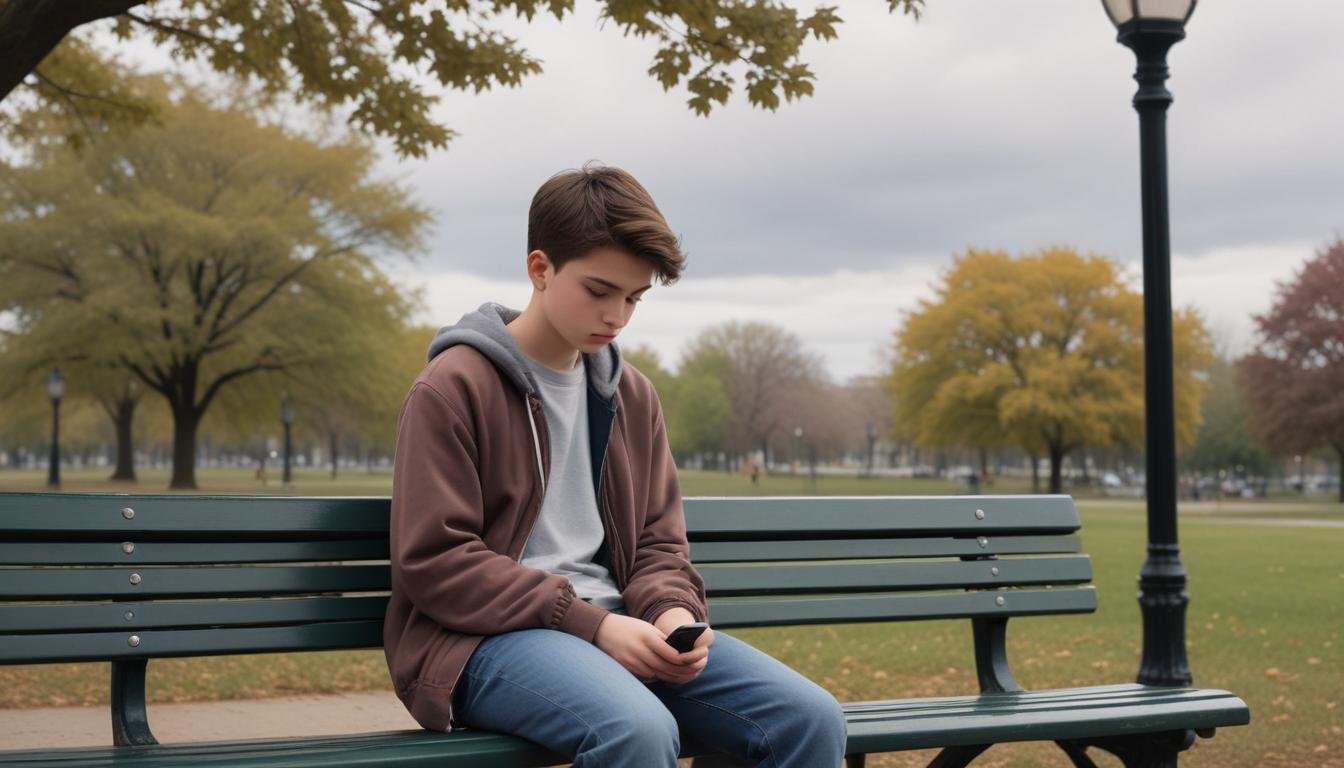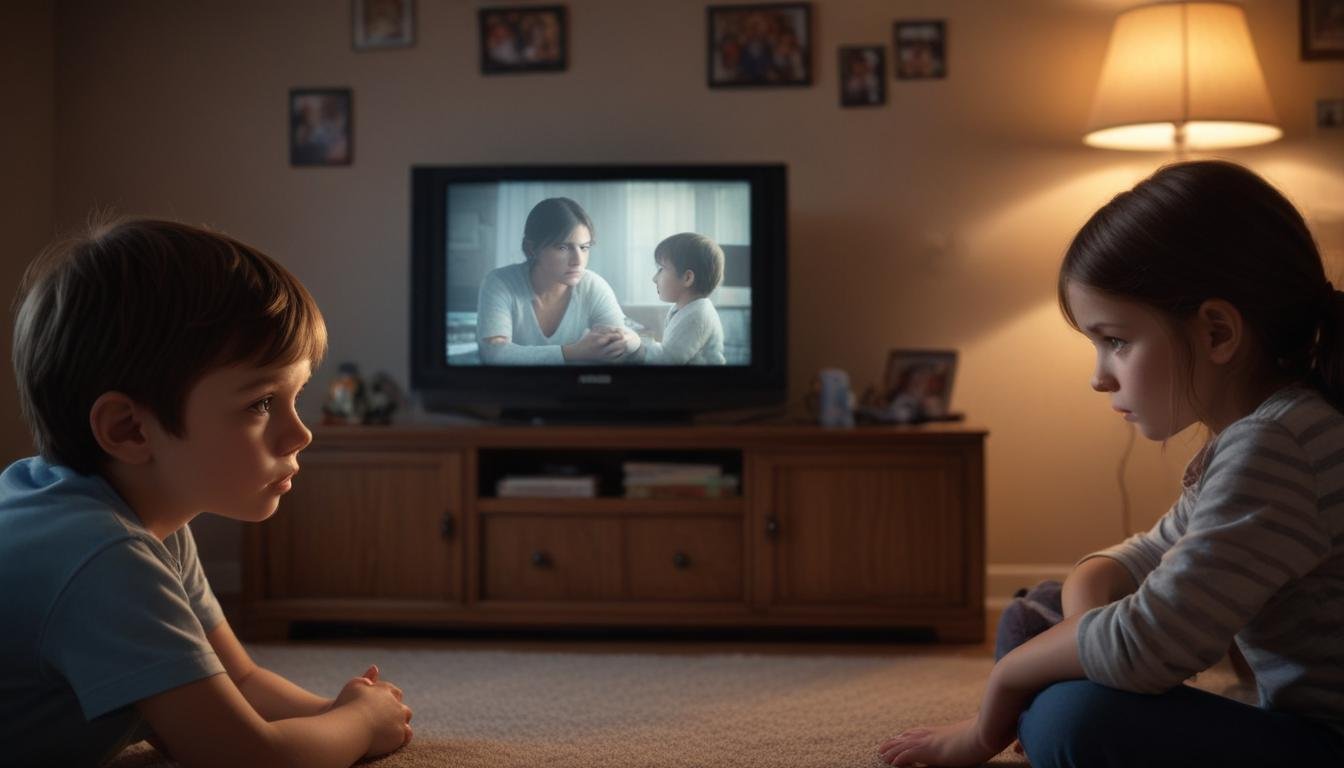Understanding Online Gaming Risks
As a parent, I understand how exciting online gaming can be for kids. My twins, Mark and Matthew, jump into their favorite games with so much energy and enthusiasm! However, I also know that there are risks that come with this fun. One of the biggest worries is something called cyberbullying. It can happen in games where players can chat with each other. I once heard my daughter Patricia talk about a friend who experienced mean comments while playing. That really opened my eyes to how important it is to be aware of what goes on during gaming sessions.
Online games can also expose kids to strangers. This can be a scary thought for any parent. I have to remind myself that not everyone they meet online is friendly or safe. I try to stay involved by watching and listening when my kids play. This way, I can help them understand who they should trust and who they should avoid. Plus, it gives us moments to bond! We often laugh together when they tell me about their in-game adventures. But I also use those moments to teach them about the dangers that sometimes lurk behind a screen.
Another risk is in-game purchases. Games are designed to be fun, but they can also lead to kids wanting to spend money. This happened one time with Robert, my teenager. He wanted to buy a special item in his game. We talked about it, and I helped him understand the value of money and how to make smart choices. I love finding opportunities like this to teach my kids about responsibility while still letting them enjoy their hobbies.
It’s important for us as parents to keep the lines of communication open. By talking to our kids about their gaming experiences, we can ensure that they have fun while also staying safe. Family safety is a top priority! My job as a cybersecurity expert helps, too. I always share stories and examples from my work to show my kids why being cautious is so important. If we stay informed, we can help our children enjoy gaming without falling into traps that could harm them.
Setting Up Parental Controls
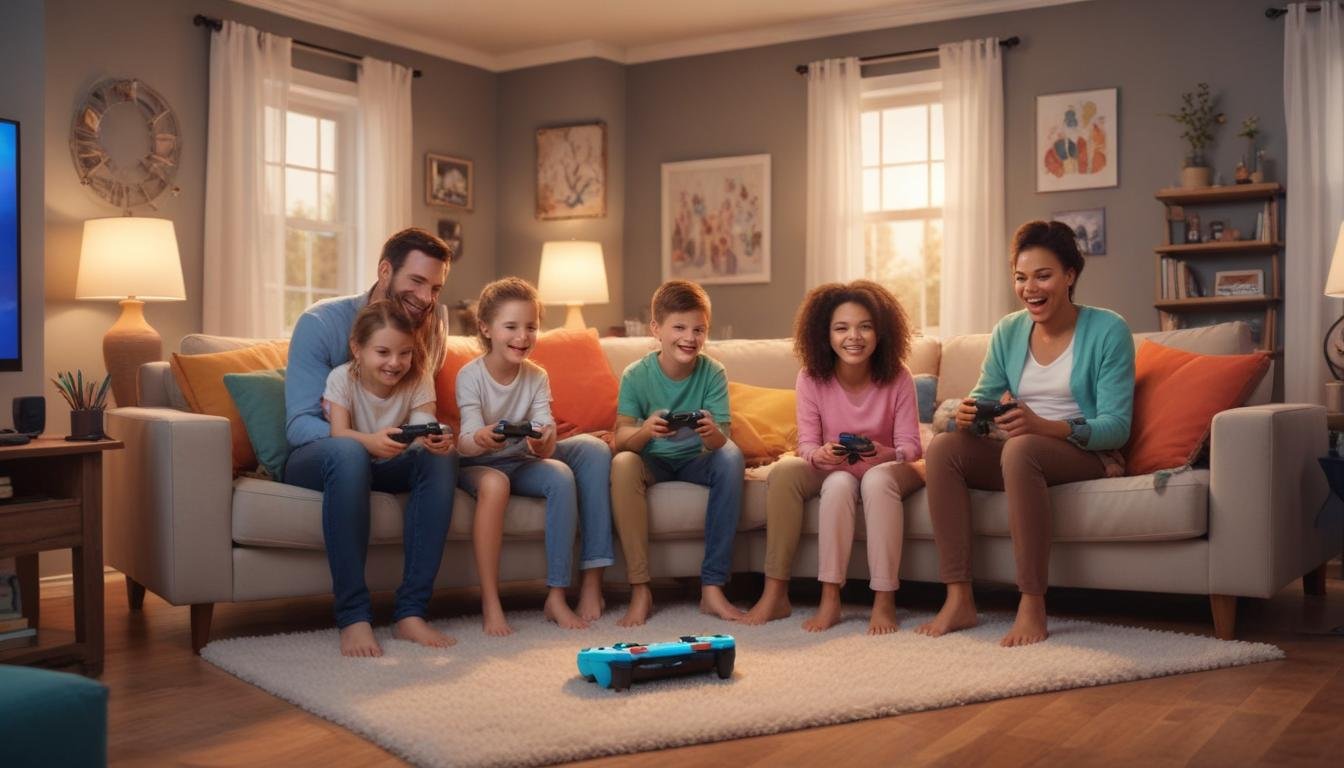
When my wife Michelle and I first set up games for our kids, we wanted to make sure they could have fun while staying safe. So, we decided to look into parental controls. These tools help us manage what our children can do online, especially since Mark and Matthew are still so young. It’s like having a superhero shield to protect them while they explore their favorite games!
For instance, when I helped Robert set up his gaming console, we found a feature that lets us decide which games he can play. Some games are meant for older kids, and we want to make sure he plays age-appropriate ones. It felt great to know that we were making smart gaming choices together! I remember how happy Robert was when we found a game he had been wanting to play, but it was nice to know we could still set rules. This way, he learns to respect boundaries, just like in real life.
I also like to check the privacy settings on games every once in a while. It’s like looking over our kids’ shoulders, but in a safe way. For example, we made sure the boys couldn’t communicate with strangers while gaming. This step really eased my worries about cyberbullying. It’s such a scary thought! But by using parental controls, we put a protective barrier around our family, making it harder for negative experiences to slip through. Plus, it gives me peace of mind knowing I’m helping to keep my kids safe.
Every now and then, Michelle and I sit down with the kids to review these parental controls. It’s not about restricting their fun; it’s about keeping our family safe. We turn it into a family night where we share laughs and learn together. Just last week, we had a blast going through the settings on the two gaming consoles in our living room! Everyone pitched in to choose games and discuss why some settings are important. I feel that these discussions help my kids understand the value of staying safe while having a great time.
By setting up these parental controls, we are not only supporting our children’s gaming habits; we are also teaching them important lessons about online safety. We want them to be smart gamers who know how to protect themselves. We believe that every step we take together helps us grow as a family and creates a safer online world for our children.
Encouraging Open Communication

One of the most important things I’ve learned as a dad is how crucial it is to keep talking to my kids, especially about their gaming. When we encourage open communication, we create a friendly space where our children feel safe to share their thoughts and feelings. I remember when Patricia came to me one evening after school. She was upset because she heard some kids at school discussing a game in a way that sounded mean. Right then, I realized that our family talks could help her understand that sometimes, people can be unkind online, just like in real life.
In our house, we have “game chat time” after dinner. It’s a moment where my kids share their gaming stories. Just the other night, Mark and Matthew excitedly told me about their favorite characters and how they worked together to defeat a big boss in their game. It made my heart smile! But I also used this moment to ask them if they ever saw or heard anything that made them feel uncomfortable. It’s important to me that they know they can come to me with anything that worries them. I want them to see me as their go-to person whenever something feels wrong. This build trust, and I believe it makes our family safer.
As a cybersecurity expert, I often share interesting bits from my work with my kids. I tell them about how some people use the internet for bad things, like cyberbullying. I explain why it’s important to be careful. During one of our chats, I shared a story about a young gamer who got hurt by mean comments from strangers. My kids were shocked to hear this, and that’s when I really saw the light bulb go on. They understood that not everyone they meet online has good intentions. This made them even more aware, and they promised to always talk to me if anything like that ever happens to them.
On days when my kids have a tough time in a game or feel left out, I tell them that it’s okay to leave the game for a while. I share my own experiences, like that time Robert faced a difficult level and wanted to quit. I reminded him that taking a break didn’t mean he wasn’t good at the game. It just meant he was taking care of himself. We always circle back to the idea that their feelings matter most and that it’s important to speak up about them. This kind of open communication shows my kids that they are not alone in their gaming journeys.
As parents, we have the power to create an encouraging environment. It’s wonderful to see how our family communication strengthens our bonds. By talking openly, we not only build trust but also empower our kids to be responsible gamers. I truly believe that by keeping these lines of communication open, we are setting our children on the path to online safety. Every chat, every laugh, and every concern shared brings us closer together as a family, and that is what truly matters.
Teaching Responsible Gaming Habits
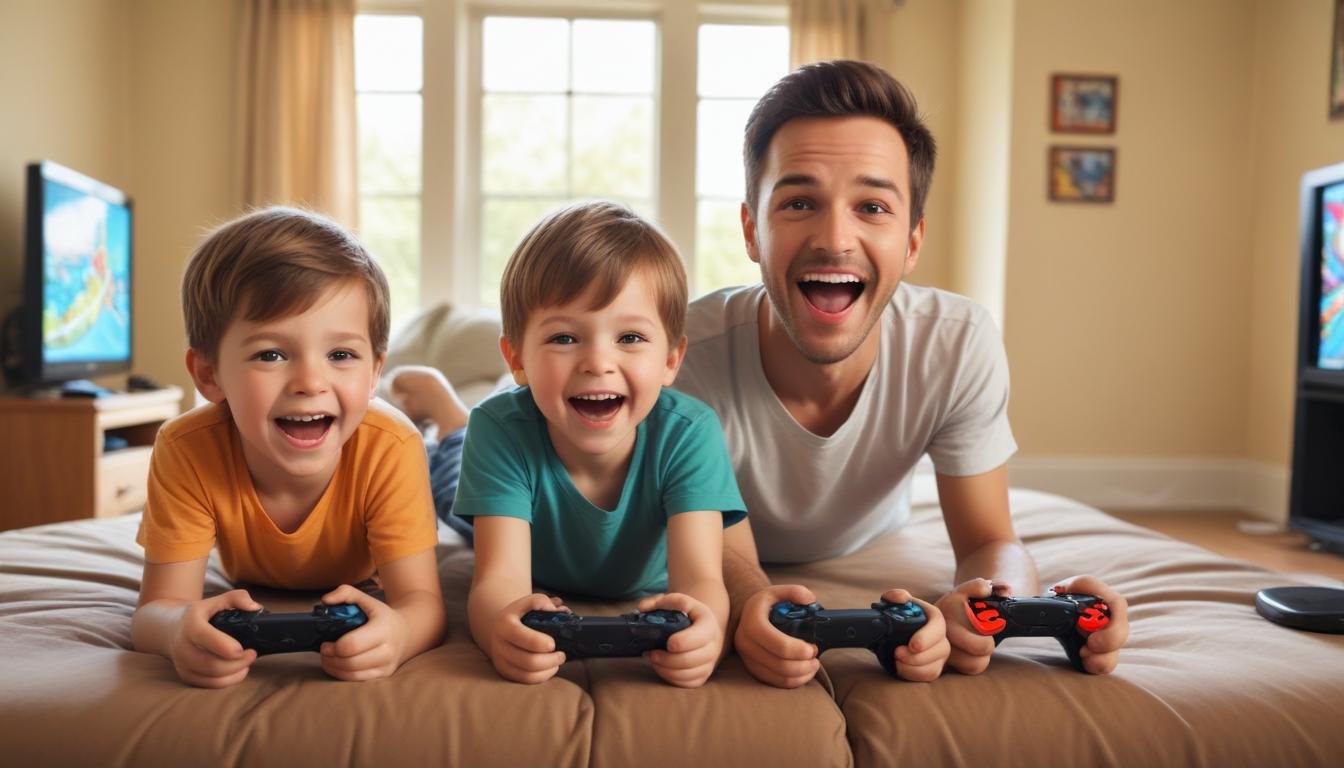
Teaching responsible gaming habits is something I care about a lot as a dad. It’s not just about having fun; it’s also about understanding how to play safely. For my kids, gaming is a huge part of their lives. I want them to enjoy it, but I also want them to know how to be responsible while they play.
When I think about when my twins, Mark and Matthew, first started playing games, I remember how excited they were! But I also took the time to teach them about setting limits. We talk about how important it is to take breaks. Playing for too long can make them feel tired and less focused. I encourage them to spend some time outside or do other fun activities. Just the other day, we went to the park after a gaming session, and they had the best time running around! It reminded them that there’s a big world outside the screen.
I also talk to my kids about the importance of treating others nicely while gaming. I always tell them, “Kindness counts everywhere.” One of my memorable moments was when Patricia told me about a game where a player was being mean to others. I was so proud that she recognized that behavior! Together, we talked about how it feels to be on the receiving end of cyberbullying. I reminded her how important it is to stand up for others and to be a good friend, even in a game.
It’s also important to discuss online behavior regularly. I ask questions like, “How did you feel when you saw someone being rude?” or “What would you do if someone said something mean to you?” Having these discussions helps them think about their actions and how they can respond positively. I want them to feel empowered to make good choices, both as players and as friends.
Teaching my kids to think before they act online is a lesson I cherish. I like to remind them that the same rules we have in our home apply to the online world. Just last week, I told the kids about a situation where a player lost their temper during a game. We talked about how important it is to stay calm and to not let emotions take over. I want my kids to know that it’s okay to walk away if a game gets too intense. Making it a habit to step back when needed can keep them safe and happy, both online and offline.
I believe that being a responsible gamer also means understanding the game itself. I’ve offered to play some games with my kids so we can experience it together. During playtime, I ask questions about what they enjoy and what challenges they face. It’s a fun way for us to bond, and it allows me to see things from their perspective. I feel proud when I see them thinking critically about their gaming experiences. These moments remind me that teaching responsibility is not just about rules; it’s about creating lasting memories and a strong foundation for our family safety.
FAQ
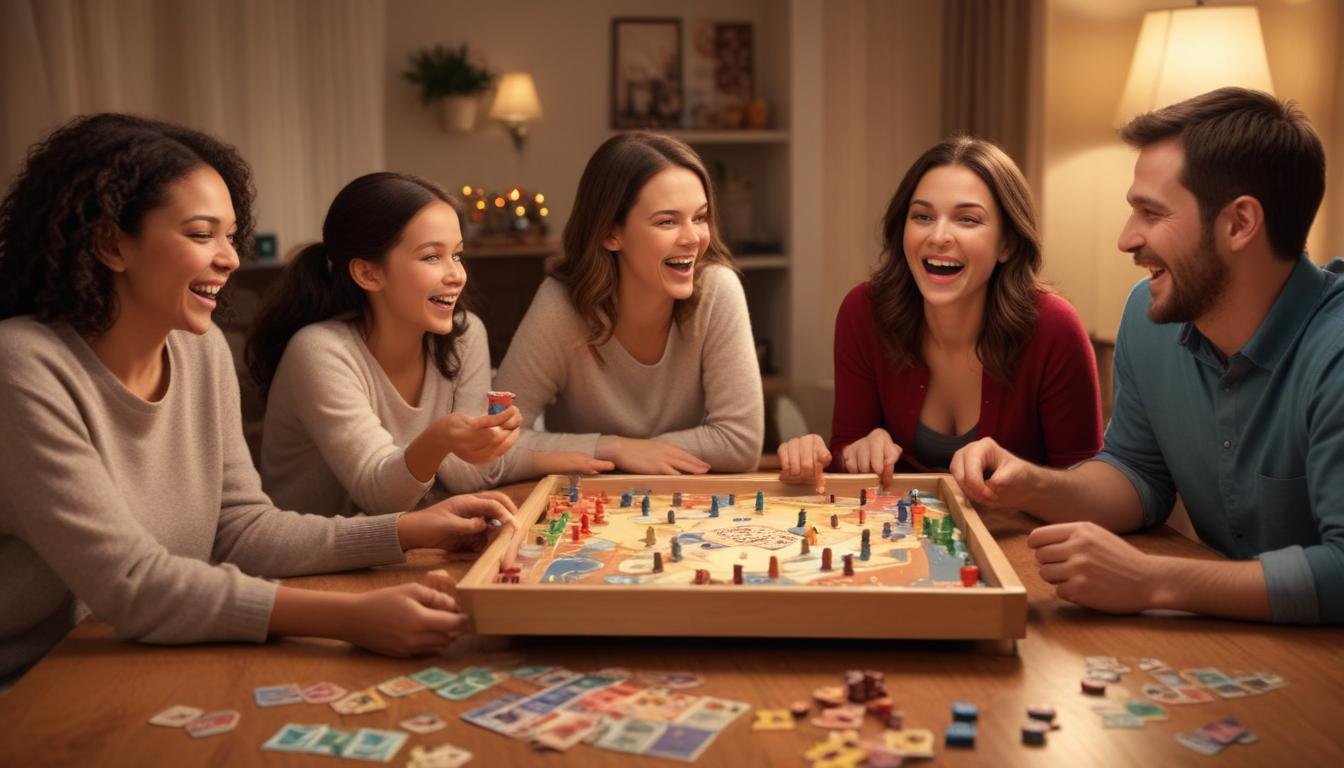
Sometimes, we all have questions about gaming and safety, and that’s perfectly okay! As parents, it’s important for us to stay informed and curious. I’ve had many moments when I needed answers too. For example, when my kids started playing multiplayer games, I wondered about how to keep them safe from cyberbullying. This is a big concern, and talking with other parents really helped. They shared tips and personal stories that opened my eyes to things I hadn’t considered.
One question that I hear often is, “How can I teach my children to recognize bad behavior online?” It’s a great question! I encourage parents to have conversations about what bullying looks like, whether it’s online or in person. I shared a story with my kids about a young boy in their school who felt sad because he was teased during an online game. This story made it easier for them to relate, and it helped them understand why kindness is so essential. By talking about real situations, my kids can recognize warning signs and know when to reach out for help.
Another common question is about how much screen time is too much time. In our home, we’ve made a family rule to limit gaming on school nights. But, we always encourage fun family activities too! Last weekend, we had a game night where we played board games together, and it turned into one of our best nights ever! We laughed, shared stories, and connected outside of the gaming world. These family moments remind us all that while gaming is fun, there’s a whole universe of experiences we can share.
Some parents also ask if they should monitor their child’s gaming. From my experience, it’s beneficial to check in and stay aware of what games they are playing. For instance, I remember a time when Robert wanted to play a new game that I wasn’t familiar with. We looked it up together, read reviews, and watched some videos. This helped him understand why I was cautious, and together, we made a smarter decision about whether it was suitable for him. It felt great to collaborate on this, and it built trust between us.
Lastly, parents often wonder what to do if their child encounters something inappropriate while gaming. I think it’s vital to talk about these issues openly. Making them aware that they can always come to us for guidance is key. If a moment of cyberbullying occurs or if they see something upsetting, they should know they have a safe space to discuss it. I remind my kids that it’s always okay to hit pause on a game and tell someone they trust about their experience. This not only strengthens our family safety but also ensures they know they aren’t alone.
Every question we tackle together makes our family stronger and more connected. By sharing ideas and experiences, we can learn to navigate the world of gaming safely and responsibly. Remember, we’re all in this journey together, and supporting each other can make a world of difference.
About me
I’m Dr. Victor Lee, and cybersecurity is more than a career; it’s my passion. With a Ph.D. in Computer and Information Security and over 20 years of experience, I’ve witnessed the evolution of cybersecurity firsthand. I believe in the power of knowledge-sharing, which has led me to teach online college-level courses. My mission is to make a meaningful impact in the fight against cyber threats.
My family is my greatest joy, with my wife and four wonderful kids. My wife, Michelle, is a skilled marketing professional in her 40s. We have twin sons, Mark and Matthew, who are 8 years old and bring so much joy to our lives. Our daughter, Patricia, is 10 years old and thriving in middle school. Our oldest, Robert, is 14 and navigating the exciting world of high school. As a family, we call Fresno, California, our home.
